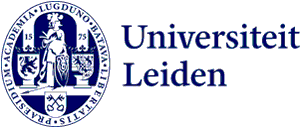
Ten Leiden researchers awarded a Veni grant
Ten Leiden researchers will receive funding of up to 280,000 euros from the Dutch Research Council (NWO). They will use this grant to develop their research ideas in the coming three years.
The Veni laureates will research topics including how to recognise false confessions in a police interrogation, the fate of foreign books in contemporary China and how Dutch refugees used language to rebuild their lives (1540-1600).
The Venis are awarded annually by NWO. Because of a hack and coronavirus NWO had to reschedule the Veni rounds from 2021. The Venis in the Science (ENW) and ZonMW domains were announced in December. The awards in the Social Sciences and Humanities (SSH) and Applied and Engineering Sciences (AES) were announced today.
Read more about the research projects that have been awarded a Veni grant below.
Language variation at home and abroad: the case of P’urhepecha in Mexico and its US diaspora
Kate Bellamy, Leiden University Centre for Linguistics
Heritage speakers display considerable intra-group linguistic variation. By documenting lexical and morpho-syntactic patterns among P’urhepecha speakers in Mexico and the US diaspora, this project investigates the sources of this variation. The ensuing online dialect atlas will serve as an online resource for speakers, learners and researchers of the language.
Combatting organisational amnesia after crises
Wout Broekema, Institute of Security and Global Affairs
Society expects public organisations to learn from crises so they will respond more effectively to future contingencies. However, organisations often forget these hard-learned lessons and thus repeat their mistakes. This project will explain why some organisations forget these lessons while others retain them. It will analyse Covid-19 lessons in ‘real time’ over three years.
I did it! Or did I? Towards diagnostic confession evidence in police interrogations
Linda Geven, Institute of Criminal Law and Criminology
Image being convicted for a crime you never committed. It sounds counterintuitive, yet wrongful convictions worldwide show that innocents can be coerced to confess to the police. However, to date, police officers, judges and juries are unable to tell innocence from guilt based on a confession statement, which has a magnitude of consequences. Using new experimental methods to elicit confessions, this project aspires to identify coercive factors in the interrogation room. Then, innovative lie detection tools based on verbal and behavioural cues to deceit will be implemented to find the truth behind the confession.
Languages as lifelines: How multilingualism helped Netherlandish refugees rebuild their lives (1540–1600)
Alisa van de Haar, Centre for the Arts in Society
In the sixteenth century, thousands fled the war-torn Southern Low Countries for the British Isles, Germany and the Northern Low Countries. This project investigates how these refugees used their language proficiency as starting capital to rebuild their lives. They applied their multilingualism to expand their social networks in exile, and as a professional skill. In doing so, they consciously employed the status of particular languages in their country of arrival. French, for instance, was particularly appreciated by the English aristocracy. The linguistic strategies of these refugees show that language differences do not necessarily hamper integration: rather, multilingualism offers invaluable opportunities.
Places to not forget: De-silencing the narratives and heritage of the world’s first Black republic, Haiti
Joseph Jean, Archaeology (and KITLV)
This project investigates archaeological sites and contemporary practices and interactions with heritage in postcolonial societies. Innovatively combining insights from archaeology, ethnography and heritage studies, Jean will use Haiti (the world’s first Black republic) to illuminate the importance of involving historically marginalised communities to arrive at inclusive narratives of the past and heritage.
Foreign Books in China, Cultural Control and Technology
Svetlana Kharchenkova, Chinese Studies
In China the government regulates what readers can access, but in their everyday practice, editors and translators play a key role in selecting foreign books for publication and preserving or adapting their content. Focusing on state control and technology, this project investigates the fate of foreign books in contemporary China.
A lost pearl: Feminist theories in Buddhist philosophy of consciousness-only
Jingjing Li, Institute for Philosophy
Drawing upon the Buddhist philosophy of consciousness-only that has been largely overlooked by feminists, the project suggests a novel framework for Buddhist feminism to resolve the canonical tension in the Buddhist stances towards the feminine and empower Buddhists to fight against sexism. As this project will argue, researchers can expand the horizon of both Buddhist philosophy and feminist thinking when they re-read Buddhist texts from a feminist perspective. The proposed version of Buddhist feminism further advances the current discussions in intercultural feminism on the reciprocity of cultural diversity and gender equality.
Policy evaluations evaluated. When do they prompt an overhaul of policies?
Valérie Pattyn, Institute of Public Administration
With policy evaluation becoming more institutionalised in public organisations, concerns about the limited use of much evaluation research have increased. This study investigates the conditions under which and how evaluations foster or impede fundamental policy changes. It compares evaluation use in countries and policy fields with different evaluation governance designs.
Portable Islam: Swahili literary networks in the Indian Ocean
Annachiara Raia, African Studies Centre Leiden, Centre for the Arts in Society
From the 1930s onwards in East Africa, a massive print production of Swahili religious pocket literature started: this vernacular literature was more accessible than Arabic and became the prime medium to spread new knowledge in the Indian Ocean. The study on how the network of booklets together with their authors, publishers and readers reshaped traditions of learning will rectify simplistic notions of inert Islamic learning traditions. Research, open access databases and outreach reading clubs in the Netherlands will contribute to a fruitful dialogue with African Muslim cosmopolitan communities.
Making the Dutch economic ‘Golden Age’
Joris van den Tol, Institute for History
This project looks beyond the usual suspects of merchants, and studies the role of industry in the early modern Dutch economy. This is not all about economic production; industry’s role in deciding regulations and determining import duties was at least as crucial for their contribution.
